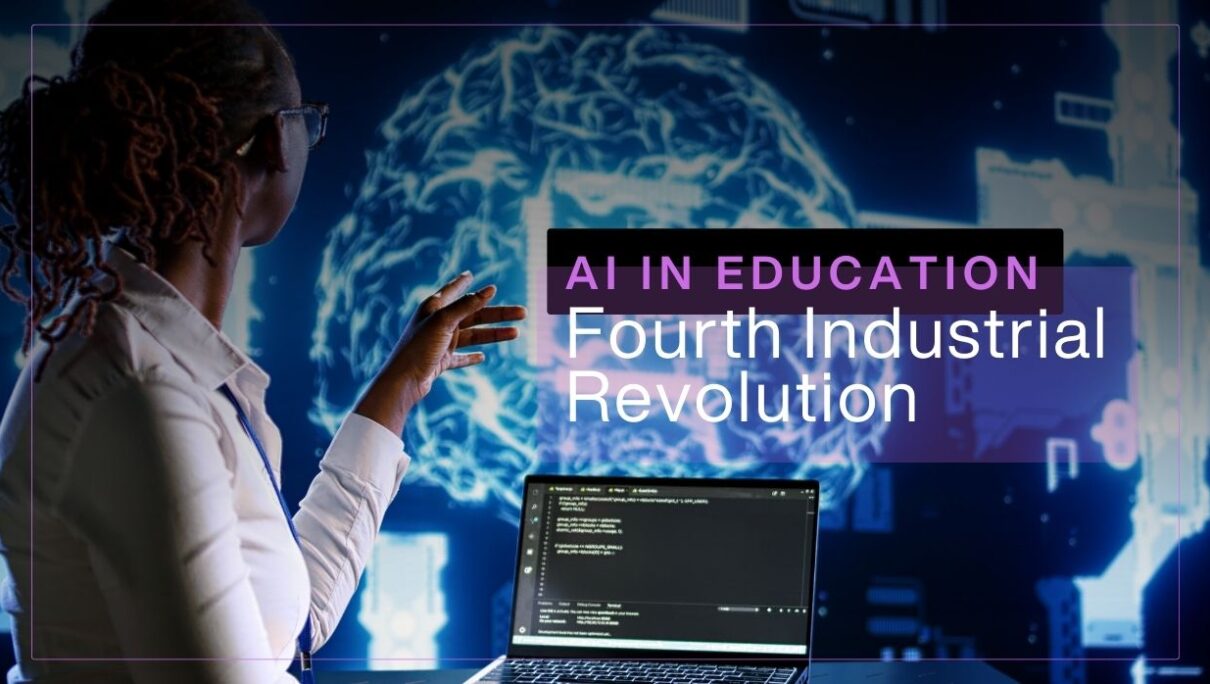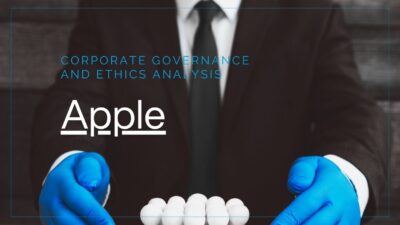Table contents
Introduction
- 1.1. Contextualising the Fourth Industrial Revolution (4IR) in Education
- 1.2. AI in Education: Economic Potential and Ethical Concerns
Problem Identification
- 2.1. Economic Disruptions
- 2.2. Ethical Dilemmas
- 2.3. Organisational Resistance
Critical Discussion
- 3.1. Economic Paradoxes
- 3.2. Normative Debates in AI Ethics
- 3.3.Future Scenarios
Recommendations and Conclusion
- 4.1. Stakeholder-Specific Strategies
- 4.2. Institutional Reforms
- 4.3. Research Directions
Conclusion
- 5.1 Synthesis of Key Tensions
- 5.2 The Imperative of Reflexive AI Adoption
References
Introduction
The advancements of the fourth industrial revolution (4IR) have witnessed the creation and uninterrupted integration of smart technology, artificial intelligence, robotics, and algorithms (STARA) across many areas of civil life (Singaram, Mayer and Oosthuizen, 2023, p. 1). Giving specific focus to artificial intelligence, its integration has traversed through industries such as finance, safety and security, medicine, human resources, and more pertinent to the concerns of this assignment is its integration across the educational sector (Kazimzade, Patzer and Pinkwart, 2019, p. 62).
Problem Identification: Key Challenges of AI Integration
While the economic value of artificial intelligence is anticipated to be significantly profound, thus gathering global support for its adoption (Jankovic and Curovic, 2023, p. 1) considering actors such as China are expected to see gross domestic product (GDP) increase of approximately 26% ($7 trillion) by 2030 (Göçen and Aydemir, 2020, p. 13), there remains the need to address business operational challenges beholding managers and related stakeholders within education sector. Like many other sectors, managers and associated stakeholders must prepare accordingly to mitigate potential challenges to business ethics during periods of transition such as the expected job losses (Oosthuizen, 2022, p. 2) and the connected implications.
Throughout the course of history, industrial revolutions have had significant impacts on societies, redefining how they function and operate at large and thus affecting the dynamics of their socio-economic system from the point of production basis, lifestyles, and daily activities (Melnyk et al., 2019, p. 381). For instance, the invention of steam power during the first industrial revolution introduced mechanical production goods, Henry Ford’s production assembly line hallmarked the second industrial revolution, the third industrial revolution saw the introduction of the programmable logic controller (PLC), and the fourth industrial revolution has been categorised as the continued advancement in cyber-physical production systems (CPPS) (Teker and Koc, 2019, p. 305). Throughout these industrial revolutions, the socio-economic impact has been characterised by the introductions of new products to replace existing ones, the disruption of hierarchy and dominance within and between competitive markets, and the need to upskill or replace a labour force and upgrade related infrastructure.
With this premise in mind, it becomes clear that the role of managers and stakeholders is to establish a balance between, navigating between the obstacles of baring the responsibility of exploiting innovation cautiously, fostering impartial business practices, whilst cultivating a transformative labour force (Berente et al., 2021, p. 3). For these reasons, this assignment aims to provide a comprehensive exploration of the multifaceted aspects of artificial intelligence integration in education, considering its economic, ethical, and organisational implications, and offering insights into future directions and recommendations for responsible adoption. This will be achieved by critically considering the motivations of employers, employees, customers (learners), and key stakeholders to adopt the new technology. Due to world limit constraints, this assignment will focus on artificial intelligence and its implications towards ‘changing roles and responsibilities’, ‘ethical considerations in AI implementation’, ‘future implications and recommendations’, and final thoughts in the ‘conclusion’ section.
The Economic Implications of AI Adoption
As previously mentioned, the economic value of artificial intelligence throughout multiple industries is anticipated to be profoundly significant (Jankovic and Curovic, 2023, p. 1), this is equally true across the realm of academia. Artificial Intelligence holds the capacity of revolutionising traditional teaching methods, personalising education, and enhancing the overall learning experience (Göçen and Aydemir, 2020, p. 14). Across the United Arab Emirates many of the academic institutes are privately run businesses and the pressure to maintain a competitive edge above others is substantial, as lagging in artificial intelligence adoption ranks highly among the major concerns for leaders in customer experience (Singaram, Mayer and Oosthuizen, 2023, p. 2).
Additionally, many executives have acknowledged that artificial intelligent tools within companies have already enhanced productivity, facilitated cost savings, and fostered innovation in products and services tailored to market needs (Jankovic and Curovic, 2023, p. 3). Furthermore, interwoven in the economic impact of artificial intelligence, is the likely need for business owner to restructure their pricing models as the cost business assets will change (Oosthuizen, 2022, p. 3), and thus early adoption and the potential to increase revenue and productivity becomes far more attractive to business owners than late adoption risking decreased customer retention, decreased competitiveness (Jankovic and Curovic, 2023, p. 4) and upholding higher costs to business operations.
Critical Discussion: Analyzing Contested Terrain
However, it is important to note that this potential widespread integration of artificial intelligence comes with its set of challenges. The anticipated job losses in the education sector due to automation and artificially intelligent driven technologies raises significant ethical concerns. Considering that in addition to the application of business ethics being to examine the ethical connections between businesses and consumers, as well as to explore the ethical dynamics between businesses and their employees (AISDL, 2020), p. 2). It is also tasked to evaluate the influence of globalisation on both the environment and society. Thus, as managers and business owners are charged with the responsibility of balancing economic gains with social welfare, strategic decision-making becomes pivotal. As emphasised by Siau and Wang (2020), the question arises: should we maintain the swift pace of integration of artificial intelligence if doing so results in significant job displacement and unemployment? Additionally, how can we ensure the preservation of human rights and well-being while maintaining the rapid evolutions and revolutions of technology? (p. 82).
Changing Roles and Responsibilities
With the potential of artificial intelligence being able to mimic the human, both in terms of dexterity and in intellectual thought, advanced foresight would expect there to be a major shift in the roles and responsibilities from educator to robots, especially as educational robots have been used for various purposes including improving academic performance and facilitating learning (Chaka, 2023, p. 3). Research conducted by Göçen and Aydemir (2020) explored potential applications of artificial intelligence in education, emphasising both the strengths, including products and outcomes, and weaknesses, covering drawbacks, connected with the implementation of artificial intelligence.
Regarding the strengths, their study highlighted possible ways the application of artificial intelligence can be employed in various areas within education, ranging from individualised learning and autonomous examination opportunities to face recognition systems and attendance tracking at class entrances. The research also underscored tools aimed at personalising the learning experience. Additionally, participent interviews uncovered further use cases for artificial intelligence such as the potential to deliver personalised education through the virtualised teaching using artificial intelligence, or using artificial intelligence mechanisms, facilitated by the development of machine learning algorithms, can be entrusted with curriculum planning within the educational system (p. 16).
The exploration of these use cases highlights the ability for artificial intelligence to reduce the workloads of employees representing potential reasons why they would be motivated to implement this technology. In the same vein, business owners and managers would be equally motivated to apply this technology as it could provide them with opportunities to automate routine tasks resulting in increased productivity and a reduced workload. For example, the ability to automate routine process such as timetable creation, grade assessment and management, event planning, marketing and social media, and employee attendance tracking are instances where automation is possible, and potentially applauded as this adds another layer of consistency of quality assurance in mitigating elements of human error.
However, while the changing of roles and responsibilities offers numerous business operational advantages, there are additional drawbacks and ethical challenges associated with the incorporation of artificial intelligence in education. Some of the challenges encompass several concerns including those related to society, technicality, and security and privacy.
From a societal perspective, the experiences of remote work during the COVID-19 pandemic could be viewed as an introductory example of the future direction of education. Schools and universities were able to remotely operate and function quite efficiently, albeit to the detriment of leaner interpersonal development. Currently, according to Chaka (2023), the predominant application of artificial intelligent technologies is in the domain of learning or learning support (p. 26). In this context, the incorporation of artificial intelligent teaching assistants may result in the emergence of more virtual jobs altering the accustomed balance between work-life and home-life (Oosthuizen, 2022, p. 3). Moreover, these changes secondary drawbacks are presented. There will be a need for managers and business owner to upskill the existing labour force to meet the change in work demands. Similar to the events of COVID-19, the creation of new curriculums will need to be devised to meet the social, emotional, well-being, and academics needs of learners and that of a restructured society.
Some of the technical concerns, which could also translate into economic challenges, surround aspects of infrastructure and the technology of itself. Firstly, communication networks and internet protocols are among the many information technology infrastructures that need to be built (Oosthuizen, 2022, p. 3). There are numerous learners within the United Arab Emirates who live in remote locations and experience infrequent access to the internet. For example, Hatem Al Ta’aee Secondary Boys School, located in the remote village of Umm Al Quwain, caters for students residing is smaller villages. The adoption of certain artificially intelligent technologies would be challenging and result in the production of other ethical concerns. Secondly, technological software is prone to malfunction. If undesirable consequences arise due to errors with the programming codes, inputted data, or improper operation, or other factors, who should be held accountable for these adverse outcomes — the programmer, the data owner, or the end-users? (Siau and Wang, 2020, p. 81). Lastly, there remains the dilemma of who will be responsible for maintaining regular updates of the technology. Whilst in-house technology is updated and maintained by in-house engineers, establishing clear protocols for system maintenance and promptly addressing updates are critical elements for ensuring long-term success for artificial intelligence.
Ethical Consideration in the Implementation of Artificial Intelligence
In the ever-evolving landscape of artificial intelligence (AI), ethical considerations have become a key component in ensuring robust data management and meticulous deployment across various sectors (Jankovic and Curovic, 2023, p. 5). This includes exploring the multifaceted dimensions of ethical considerations related to AI implementation, addressing the privacy concerns during data handling, mitigating the inherent bias in algorithms and decision-making, and establishing robust ethical guidelines to ensure responsible AI practices across academic processes.
One of the foremost ethical challenges in AI implementation revolves around the handling of sensitive data and the preservation of privacy. As organisations exploit the capabilities of AI to gather insights about employees and customers from vast datasets, the potential for cyber-attacks remains high due to AI’s ability to emulate humans (Berente et al., 2021, p. 9). To circumvent this, there is a real need to strike a balance between innovation and data protection. This requires the development and implementation of robust privacy policies. These policies should outline the permissible uses of data, ensuring informed consent, and incorporating measures to safeguard individual privacy rights (Velarde, 2019, p. 44). By adopting a proactive approach to data management, Business owners and managers can foster a greater sense of trust and transparency to the wider community in their AI initiatives.
The topical ethical issue that remains at the forefront of discussion surround the adoption of AI, is the bias in AI algorithms and decision-making. Since AI systems have been trained on biased datasets, it is believed that they may propagate, and amplify existing prejudices as data inherit the same biases as we humans have (Corea, 2019, p. 34). Addressing this challenge requires a collaborative effort to promote algorithmic fairness and eliminate inherent dataset biases. This could take the form of implementing fairness-enhancing techniques, continuous monitoring, and fostering diversity within AI development teams to cultivate algorithms that adhere to ethical standards. Moreover, effectively overseeing AI involves handling a forever evolving technology both in the present moment and throughout its development over time. The task of managing AI is not a conclusive or completed one, but rather, it is an ongoing process characterised by emergence and performativity (Berente et al., 2021, p. 11).
With the ever-growing collection of big data, it is imperative to carefully navigate the ethical terrain of AI implementation, businesses must establish clear and comprehensive ethical guidelines. These guidelines should define the principles governing the use of AI, whilst addressing issues such as transparency, accountability, and the responsible deployment of AI technologies. For example, when visiting websites managed by the European Union, consent must be given by an individual for their data to be used. By creating a robust framework that aligns with societal values and legal requirements, businesses can navigate the ethical complexities of AI implementation and instil confidence among stakeholders in their commitment to ethical conduct (Jankovic and Curovic, 2023, p. 5).
The ethical use of AI extends beyond mere guidelines, it emphasises the cultivation of an ethical culture within the organization. Ethical leadership is paramount, setting the tone for responsible AI practices. As Dielini, (2020) states,
“The ethics of responsibility includes two responsibilities in relation to the future: the first duty is to develop and generate ideas about the possible long-term consequences of collective practice; and the associated duty – “courage to fear” – refraining from actions whose consequences may threaten the future existence of humanity (Dielini, 2020,p. 21).
Therefore, managers and business owners should prioritise ethical considerations, championing integrity, transparency, and a commitment to societal well-being. Additionally, fostering an ethical organisational culture encourages employees to engage in ethical decision-making. This can be achieved through training programs and initiatives which plays a pivotal role in instilling ethical considerations within a business.
Recommendations & Policy Implications
Several implications are associated with the incorporation of artificial intelligence in education. These implications pertain to learner development and the potential of moulding mechanical thinking in individuals, subduing intuitive knowledge. Also, an undesirable scenario may arise from the comprehensive evaluation of leaner, whereby learner become categorised humans based on their IQ, and thus result in the emergence of an information-oriented human type (Göçen and Aydemir, 2020, p. 16). One contingency recommendation would be to have the guidance and steering of artificial intelligence in place of learning conducted by industrial psychologists who can contribute to creating a healthier learning environment for humans (Oosthuizen, 2022, p. 9).
With the anticipated disruption to the labour force, as a results of the expected shift in market demands, employers could take a proactive approach in providing opportunities to upskill existing employees. By conducting business needs analysis based on simulated scenarios of implemented artificial intelligence, combined with skills assessments of existing employers, businesses can gain relevant insight with a holistic view of areas of potential weakness providing them an opportunity ahead of time to address and strengthen them. Additionally, the early upskilling of the labour force may create a smoother transitioning period by preventing a situation whereby industries face shortages of skilled workers, and society experiences a drastic increase in unemployment.
Lastly, most school curriculums and curated assessment tools are rarely created to measure academic achievements (or levels) with the disabled learner in mind. Consequently, learners with disabilities or impairments may seem “atypical” in the data models that underpin these systems, illustrating the outcome, for instance, of machine learning-based feedback (Kazimzade, Patzer and Pinkwart, 2019, p. 65). Future developments within the sphere of artificial intelligence will need to focus their efforts on training datasets to account for existing biases. This could take the form of creating decentralised data centres specifically designed to be used within academia during assessments.
Conclusion
In conclusion, the integration of artificial intelligence (AI) in education has great potential, though, for it to be realised it requires a strategic approach to address the numerous challenges and ethical considerations associated with its adoption. The commencement of the fourth industrial revolution (4IR) has brought with it unmatched advancements in smart technology, AI, robotics, and algorithms, transforming various sectors, including education. However, for businesses navigating this transformative period, several critical aspects emerge.
The economic implications of AI adoption in academic institutes underscore the significant value it can bring, such as a revolution in teaching methodologies, personalised education, and enhanced learning experiences. However, alongside this integration comes with it ethical dilemmas, particularly concerning job displacement and the need for restructuring business models. The responsibility falls on managers and business owners to balance economic gains with societal well-being, prompting the need for strategic decision-making in the face of technological evolution.
Changing roles and responsibilities in education, driven by AI, bring operational advantages but also ethical challenges. The potential for job losses requires a meticulous examination of the societal, technical, and security implications. Technical concerns, such as infrastructure and software malfunctions, demand proactive measures to ensure minimised disruption to the integration process.
The ethical considerations in AI implementation are of paramount importance, thus, addressing privacy concerns, biases in algorithms, and the establishment of ethical guidelines is crucial. Establishing ways to balance between innovation with data protection, cultivating algorithmic fairness, and fostering an ethical environment within organisations are essential components. This can be achieving educational integrity by the transparent use of AI technologies, safeguarding student privacy, and ensuring fair access to AI-enhanced resources.
When considering the future, the implications of AI in education reuire a holistic and proactive approach. Industrial psychologists can play a pivotal role in steering AI towards a healthier learning environment. Employers should proactively upskill their workforce to meet evolving demands, ensuring a smooth transition in the labour market. Additionally, addressing biases in datasets is crucial for creating an inclusive and ethical AI environment within academia.
Having explored the integration of AI in education, considering its economic, ethical, and organisational implications, whilst providing insights into future directions and recommendations for responsible adoption, it becomes evident that this requires a collaborative effort. By aligning economic goals with ethical considerations, fostering an ethical organisational culture, and prioritizing educational integrity, stakeholders can harness the transformative potential of AI while upholding ethical standards and the well-being of society.
[word count: 2949]
Reference
AISDL (2020) The Importance of business ethics in business development. Available at: https://doi.org/10.31219/osf.io/9mh37.
Berente, N. et al. (2021) ‘Managing Artificial Intelligence’, MIS Quarterly, 45, pp. 1433–1450. Available at: https://doi.org/10.25300/MISQ/2021/16274.
Chaka, C. (2023) ‘Fourth industrial revolution-a review of applications, prospects, and challenges for artificial intelligence, robotics and blockchain in higher education’, Research and Practice in Technology Enhanced Learning, 18, pp. 1–39. Available at: https://doi.org/10.58459/rptel.2023.18002.
Corea, F. (2019) ‘Machine Ethics and Artificial Moral Agents’, in F. Corea (ed.) Applied Artificial Intelligence: Where AI Can Be Used In Business. Cham: Springer International Publishing, pp. 33–41. Available at: https://doi.org/10.1007/978-3-319-77252-3_6.
Dielini, M. (2020) ‘EVOLUTION OF BUSINESS ETHICS: FROM GENERAL PHILOSOPHICAL PRINCIPLES TO CORPORATE SOCIAL RESPONSIBILITY’, Skhid, 5, pp. 18–23. Available at: https://doi.org/10.21847/1728-9343.2020.5(169).215304.
Göçen, A. and Aydemir, F. (2020) ‘Artificial Intelligence in Education and Schools’, Research on Education and Media, 12, pp. 13–21. Available at: https://doi.org/10.2478/rem-2020-0003.
Jankovic, S.D. and Curovic, D.M. (2023) ‘Strategic Integration of Artificial Intelligence for Sustainable Businesses: Implications for Data Management and Human User Engagement in the Digital Era’, Sustainability, 15(21). Available at: https://doi.org/10.3390/su152115208.
Kazimzade, G., Patzer, Y. and Pinkwart, N. (2019) ‘Artificial Intelligence in Education Meets Inclusive Educational Technology—The Technical State-of-Art and Possible Directions’, in. Available at: https://doi.org/10.1007/978-981-13-8161-4_4.
Melnyk, L. et al. (2019) ‘The effect of industrial revolutions on the transformation of social and economic systems’, Problems and Perspectives in Management, 17, pp. 381–391. Available at: https://doi.org/10.21511/ppm.17(4).2019.31.
Oosthuizen, R.M. (2022) ‘The Fourth Industrial Revolution – Smart Technology, Artificial Intelligence, Robotics and Algorithms: Industrial Psychologists in Future Workplaces’, Frontiers in Artificial Intelligence, 5. Available at: https://www.frontiersin.org/articles/10.3389/frai.2022.913168.
Siau, K. and Wang, W. (2020) ‘Artificial Intelligence (AI) Ethics: Ethics of AI and Ethical AI’, Journal of Database Management, 31, pp. 74–87. Available at: https://doi.org/10.4018/JDM.2020040105.
Singaram, S., Mayer, C.-H. and Oosthuizen, R.M. (2023) ‘Leading higher education into the fourth industrial revolution: an empirical investigation’, Frontiers in Psychology, 14. Available at: https://www.frontiersin.org/articles/10.3389/fpsyg.2023.1242835.
Teker, S. and Koc, T. (2019) ‘Industrial Revolutions and its effects on quality of life’, Pressacademia, 9, pp. 304–311. Available at: https://doi.org/10.17261/Pressacademia.2019.1109.
Velarde, G. (2019) ‘Artificial Intelligence and its impact on the Fourth Industrial Revolution: A Review’, ArXiv, abs/2011.03044. Available at: https://api.semanticscholar.org/CorpusID:208540356.




